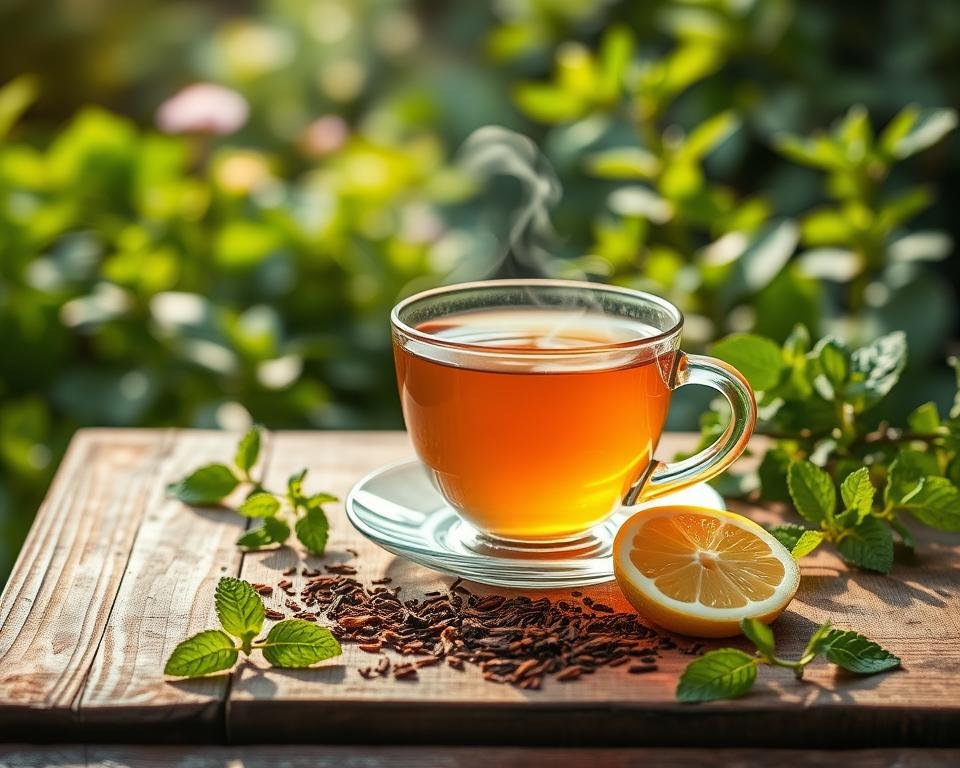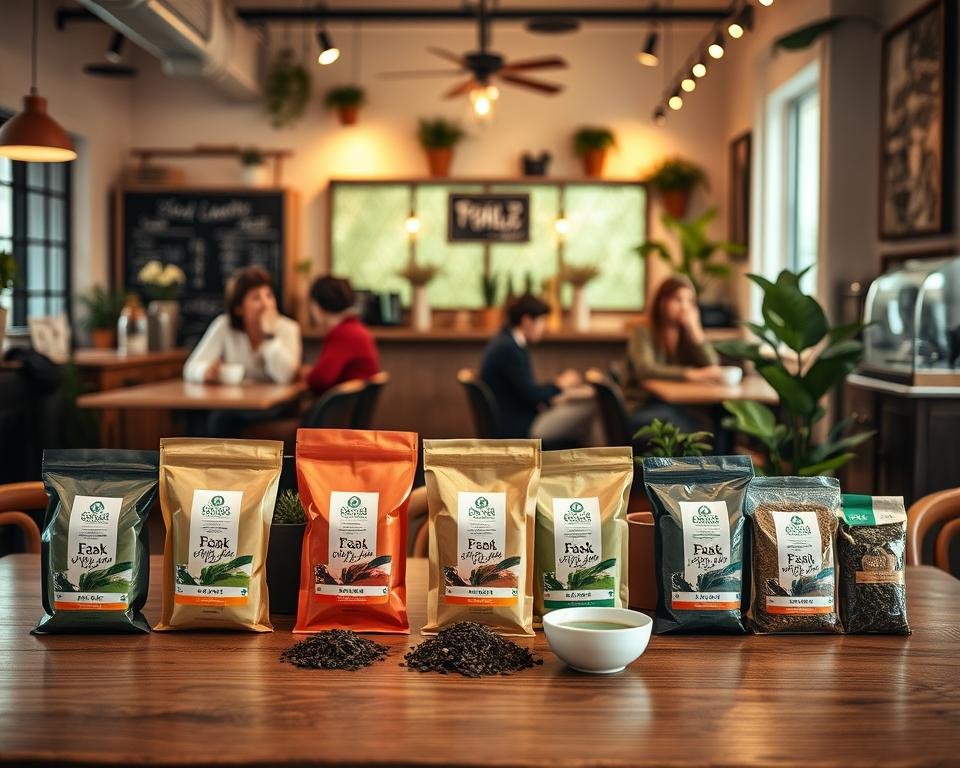An ancient herb, steeped in centuries of tradition, is finding new life in the modern wellness world, whispered to be a potent secret for shedding pounds. It’s called “Mexican Tea,” and the claims are enticing: a natural remedy that can fire up your metabolism and melt away fat. But in a world saturated with quick-fix promises, we have to ask the critical question: Is there any scientific truth to this, or is it just another health myth brewing?
Welcome to our investigative review. Here at go4healthnfitness.com, we don’t take claims at face value. Our mission is to dissect the hype, scrutinize the science, and deliver the unvarnished truth. We’re about to journey deep into the history, chemistry, and scientific evidence—or lack thereof—surrounding Mexican Tea. Before you consider sipping this traditional brew for weight loss, let’s find out if it’s a safe, effective strategy or a risky detour on your wellness journey.
Key Investigative Findings
For those seeking immediate clarity, here are the essential takeaways from our in-depth analysis.
- No Direct Evidence for Fat Burning: Our investigation found zero robust clinical human studies that prove Mexican Tea (Dysphania ambrosioides or Epazote) directly burns fat, boosts metabolism, or aids in weight loss. Claims are purely anecdotal or based on misinterpretations of its traditional uses.
- Significant Safety Concerns: The active compound in Epazote, ascaridole, is a potent toxin. Overconsumption or improper preparation can lead to serious side effects, including dizziness, vomiting, liver damage, and in severe cases, can be fatal. The essential oil is particularly dangerous and should never be ingested.
- Traditionally a Dewormer, Not a Diet Aid: Historically, Mexican Tea was used as a powerful vermifuge—a substance that expels intestinal parasites. Its biological activity is geared towards this purpose, not metabolic enhancement.
- Verdict: Not Recommended for Weight Loss: Due to the lack of scientific support and the significant potential for toxicity, we cannot recommend Mexican Tea as a safe or effective tool for weight management. Safer, evidence-backed alternatives are far superior.
- 🌿 Premium Quality: 100% natural, wildcrafted Quina Roja bark, also known as Cinchona Bark, for a unique herbal tea exper…
- 🍵 Generous Servings: 2 oz (58g) bag makes 25+ cups, perfect for daily enjoyment.
- 🌱 Pure & Natural: Gluten-free, non-GMO, and free from any additives or fillers—just pure herbal bark.
- Caffeine-Free Herbal Blend: Enjoy the soothing benefits of Licorice, Hibiscus, Fennel, Tulsi Leaves, and Shatavari in th…
- 20 Individually Wrapped Tea Bags: Each box contains 20 individually wrapped tea bags to preserve freshness, making it a …
- Versatile Brewing Options: Whether you prefer hot or iced tea, these pyramid-shaped tea bags offer the flexibility to st…
What Exactly is Mexican Tea? (The Science & History) 🌿
So, what is this mysterious “Mexican Tea”? The plant in question is Dysphania ambrosioides, more commonly known as Epazote. It’s a pungent, leafy herb native to Central and South America, and it has been a staple in traditional Mexican cuisine and medicine for centuries.
In the kitchen, a small amount of Epazote is used to flavor beans, soups, and stews, with many claiming it helps reduce the gas and bloating associated with legumes. But its medicinal history is where things get more intense.
For generations, traditional healers have revered Epazote not for weight loss, but for its potent anthelmintic properties. This means it was primarily used to treat and expel intestinal worms, like roundworms and hookworms. The compound responsible for this powerful effect is ascaridole, an organic peroxide that can constitute up to 70% of the plant’s essential oil.
While effective against parasites, ascaridole is also what makes Epazote potentially dangerous for humans. It is a volatile, toxic compound, and its concentration in the plant can vary widely based on growing conditions and harvesting time. This inherent unpredictability is a major red flag from a safety perspective.
The Fat-Burning Claims: What’s the Buzz? 🤔
Despite its historical use as a dewormer, the internet wellness community has rebranded Epazote as a “fat-burning” tea. Claims are scattered across forums, blogs, and social media, often presented without context or evidence.
You might see anecdotal reports like this:
“I started drinking a cup of Mexican Tea every morning, and I feel less bloated and have more energy. The pounds are starting to come off! This is the natural solution I’ve been looking for.” – Anonymous Forum Comment
These stories often connect the tea’s “cleansing” properties to weight loss, suggesting it detoxifies the body and kickstarts metabolism. The logic seems to be that if it can “clean out” parasites, it must also be able to “clean out” fat. This is a dangerous and unscientific leap. The biological mechanisms for killing a parasite and metabolizing adipose (fat) tissue are completely unrelated.
The buzz appears to be fueled by a desire for natural, exotic remedies that challenge mainstream medicine. However, “natural” does not automatically mean “safe,” and traditional use for one condition does not imply effectiveness for another.
The Scientific Evidence: Fact vs. Fiction 🔬
This is the heart of our investigation. When we strip away the anecdotal claims and traditional folklore, what does the peer-reviewed scientific literature say about Mexican Tea and weight loss?
The answer is simple and unequivocal: nothing.
Our comprehensive search of scientific databases, including PubMed, the National Institutes of Health (NIH), and other research repositories, yielded no clinical trials or credible studies that link the consumption of Dysphania ambrosioides tea to fat burning, increased metabolism, or weight loss in humans.
The existing research on Epazote focuses almost exclusively on:
- Its Anthelmintic (Anti-parasitic) Properties: Numerous studies confirm the efficacy of ascaridole in killing and expelling intestinal worms, validating its traditional use.
- Its Toxicity (Toxicology): A significant body of research is dedicated to the toxic effects of ascaridole on human and animal cells, highlighting the risks of consumption.
- Its Chemical Composition: Scientists have thoroughly analyzed the plant’s essential oils to understand its various compounds.
There is no scientific basis for the claim that this tea targets adipocytes (fat cells) or alters metabolic pathways in a way that would promote weight loss. The “less bloated” feeling some users report is likely due to the carminative effect of the herb (its ability to relieve gas), which is why it’s traditionally cooked with beans. This is not fat loss.
- 🌿 Premium Quality: 100% natural, wildcrafted Quina Roja bark, also known as Cinchona Bark, for a unique herbal tea exper…
- 🍵 Generous Servings: 2 oz (58g) bag makes 25+ cups, perfect for daily enjoyment.
- 🌱 Pure & Natural: Gluten-free, non-GMO, and free from any additives or fillers—just pure herbal bark.
- Pure Hierba Del Sapo: Made from 100% all-natural Mexican Thistle (Eryngium Heterophyllium). Non-GMO: Ensuring a natural …
- Sourced from Mexico: Reflects the rich tradition of natural wellness. Refreshing Taste: Enjoy the unique flavor of this …
- Versatile Brewing: Ideal for a comforting and refreshing cup of tea. 4 oz Pack: Generous amount to enjoy multiple servin…
- 🌳 100% Natural Tepezcohuite Bark – 4 oz Loose Herbal Tea Sustainably wild-harvested from Mexico’s native Mimosa tenuiflo…
- 🫖 Traditional Herbal Infusion – Hot or Cold Used for generations in indigenous wellness practices—earthy, grounding flav…
- 🌱 Vegan, Non-GMO & Caffeine-Free No additives, no artificial colors, no preservatives—just pure bark. 🌱 Vegano, No OGM y…
Feature: Comparison Table
To make this crystal clear, here is a breakdown of the claims versus the reality.
| Popular Claim | Traditional Basis | Scientific Evidence Rating (for Weight Loss) |
|---|---|---|
| Burns fat and boosts metabolism. | None. This is a modern invention. | None |
| “Cleanses” or “detoxifies” the body. | Based on its use as a dewormer. | None |
| Reduces bloating and aids digestion. | Yes, it has carminative properties. | Limited (Does not equate to fat loss) |
| A safe, natural weight loss aid. | No, it was used cautiously by healers. | None (Evidence points to significant risk) |
CRITICAL SECTION: Safety, Side Effects, and Dosage ⚠️
This is the most important part of our review. The promotion of Mexican Tea for weight loss is not just misleading; it is irresponsible and dangerous. The potential for harm is significant and far outweighs any unproven benefit.
The primary culprit is ascaridole. The World Health Organization (WHO) has noted its toxicity, and case reports have documented severe poisoning from Epazote overdose.
Potential Side Effects and Risks Include:
- Gastrointestinal Distress: Nausea, vomiting, and diarrhea are common early signs of toxicity.
- Neurological Symptoms: Dizziness, headaches, vertigo, and ataxia (loss of muscle control) can occur.
- Organ Damage: The most severe risk is to the liver and kidneys. Ascaridole is hepatotoxic, meaning it can cause chemical-driven liver damage.
- Respiratory Issues: Inhaling the vapors of the essential oil or consuming it can lead to respiratory distress.
- Death: In high doses, Epazote poisoning can be fatal. The essential oil is extremely concentrated and should never be ingested.
Who Should Avoid Mexican Tea Entirely?
- Pregnant and Breastfeeding Women: Epazote is a known uterine stimulant and can induce miscarriage. It is absolutely contraindicated during pregnancy.
- Individuals with Kidney or Liver Conditions: The toxic load is too high for compromised organs to handle.
- Children and the Elderly: These populations are more susceptible to its toxic effects.
- Anyone with a history of seizures or neurological disorders.
There is no scientifically established “safe” dosage for Mexican Tea for weight loss because it shouldn’t be used for this purpose. Traditional culinary use involves very small amounts of the leaves, where the risk is lower. Brewing it as a daily tea dramatically increases the risk of chronic toxicity.
The Verdict: Should You Use Mexican Tea for Weight Loss?
After a thorough investigation into the science, history, and safety of Mexican Tea (Dysphania ambrosioides), our verdict is a firm and resounding no.
The claims that this ancient remedy can burn fat or effectively aid in weight loss are entirely unsubstantiated by scientific evidence. Promoting it for this purpose is a classic example of wellness hype that preys on the desire for a quick and easy solution.
What’s worse is that this myth is not benign. It encourages the regular consumption of a potentially toxic plant, putting users at risk for serious health complications. The risk-to-benefit ratio is infinitely poor because there is no proven benefit for weight loss and a very real risk of harm.
If your goal is sustainable weight management, we strongly advise turning to methods backed by science:
- A balanced, whole-foods diet rich in protein, fiber, and healthy fats.
- Consistent physical activity, including both cardiovascular exercise and strength training.
- Adequate sleep, which is crucial for hormonal regulation and metabolism.
- Stress management, as chronic stress can lead to weight gain.
- 🌿 Premium Quality: 100% natural, wildcrafted Quina Roja bark, also known as Cinchona Bark, for a unique herbal tea exper…
- 🍵 Generous Servings: 2 oz (58g) bag makes 25+ cups, perfect for daily enjoyment.
- 🌱 Pure & Natural: Gluten-free, non-GMO, and free from any additives or fillers—just pure herbal bark.
- Pure Hierba Del Sapo: Made from 100% all-natural Mexican Thistle (Eryngium Heterophyllium). Non-GMO: Ensuring a natural …
- Sourced from Mexico: Reflects the rich tradition of natural wellness. Refreshing Taste: Enjoy the unique flavor of this …
- Versatile Brewing: Ideal for a comforting and refreshing cup of tea. 4 oz Pack: Generous amount to enjoy multiple servin…
- 🌳 100% Natural Tepezcohuite Bark – 4 oz Loose Herbal Tea Sustainably wild-harvested from Mexico’s native Mimosa tenuiflo…
- 🫖 Traditional Herbal Infusion – Hot or Cold Used for generations in indigenous wellness practices—earthy, grounding flav…
- 🌱 Vegan, Non-GMO & Caffeine-Free No additives, no artificial colors, no preservatives—just pure bark. 🌱 Vegano, No OGM y…
Conclusion
The story of Mexican Tea is a powerful lesson in the importance of critical thinking in the wellness space. An ancient remedy with a specific, powerful, and dangerous traditional use has been co-opted and repackaged with a completely unfounded modern claim. It serves as a stark reminder that “natural” is not a synonym for “safe” and “traditional” does not grant a free pass from scientific scrutiny.
Your health journey deserves to be built on a foundation of truth and safety. Don’t be swayed by myths. Instead, empower yourself with evidence-based knowledge.
Where Wellness Meets Scientific Truth.
Frequently Asked Questions (FAQ)
1. Is Mexican tea safe to drink daily? No. Due to the presence of the toxic compound ascaridole, daily consumption is not safe. It can lead to a gradual build-up of toxins in the body, potentially causing liver damage and other serious side effects.
2. Is there any scientific proof that Epazote burns fat? Absolutely not. There are no peer-reviewed human clinical trials that demonstrate any fat-burning or metabolic-boosting effects from drinking Epazote tea. The claims are purely anecdotal and have no scientific foundation.
3. What are better, science-backed natural alternatives for weight loss? Focus on lifestyle changes and supplements with proven efficacy. Green tea, for example, contains catechins (like EGCG) and caffeine, which have been shown in some studies to modestly support metabolism. However, the most effective “natural” alternatives are not pills or teas, but rather a nutrient-dense diet, regular exercise, and sufficient sleep.
4. Can I just use a tiny amount like in cooking? Using a very small amount of Epazote leaf to flavor a large pot of beans (its traditional culinary use) is generally considered low-risk for most healthy adults. However, brewing the leaves into a tea for regular consumption is a completely different and much riskier practice. We do not recommend it.
5. I saw a product online selling “Mexican Weight Loss Tea.” Should I trust it? No. Any product marketing Dysphania ambrosioides or Epazote as a weight loss aid is making unsubstantiated and dangerous claims. The supplement industry is poorly regulated, and these products could contain unsafe levels of toxic compounds. Avoid them completely.
References
- Gowda, N. K. S., et al. (2007). Chenopodium (Dysphania) ambrosioides in the diet of broiler chickens and its effects on performance and carcass characteristics. Journal of the Science of Food and Agriculture. [Link available via PubMed Central]
- World Health Organization (WHO). (1999). Chenopodium ambrosioides L. WHO Monographs on Selected Medicinal Plants – Volume 1.
- Nascimento, F. R., et al. (2006). Ascitic and solid Ehrlich tumor inhibition by Chenopodium ambrosioides L. treatment. Life sciences, 78(22), 2650-2653. [Focuses on anti-cancer properties, not weight loss].
- MacDonald, D., et al. (2004). Ascaridole-less infusions of Chenopodium ambrosioides alter the reproduction and vectorial capacity of Aedes aegypti (Diptera: Culicidae). Journal of ethnopharmacology, 95(2-3), 267-274.
- Texas A&M University, AgriLife Extension. “Epazote (Dysphania ambrosioides).” Poisonous Plants Database.









